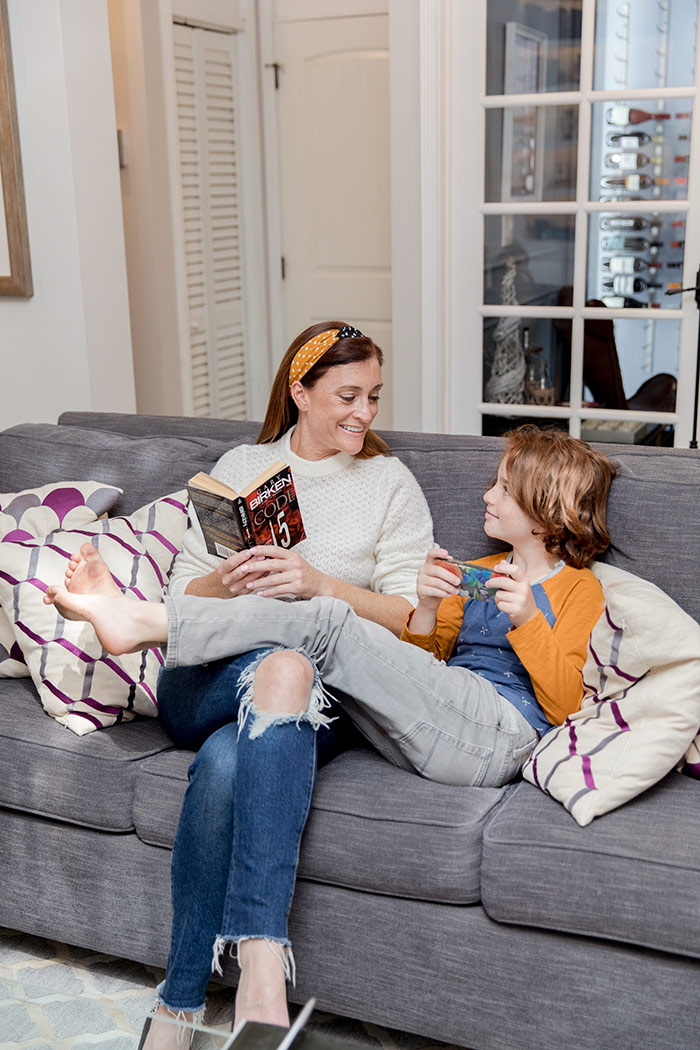
Navigating the New World of Virtual Friendships
As virtual learning comes to an end, our children are left with a different type of end-of-the-year celebrations. They can’t hug their teachers goodbye, write in each others’ yearbooks, or enjoy their last few days together as a class. For many of our older children, there will be no prom or graduation ceremonies. Similar to the past few months of learning, their celebration, playdates, and friendships have all become virtual. But the importance of social development is still apparent in this new virtual world. How do we navigate these new waters and help our children?
As parents, we have worked very hard to limit screen time for our children. However, with the stay-at-home orders across the nation, those limitations have been thrown out the window as we desperately attempt to balance working from home with keeping our kids entertained.
Old Friendships vs. Virtual Friendships
Will the world ever look the same again?
For most kids, friendships are fairly easy. They meet a new kid on the playground, and an instant bestie is made! They are now asking for their new friend to come to their birthday party and come over for a playdate. But being home for the last few months has definitely put a stop to these types of interactions. And the importance of social skills has become increasingly apparent with so many kids at home and often attached at the hip to screen and electronic devices.
Whether you have a preschooler who is watching too much YouTube or a middle schooler on TikTok the whole day, we are all left feeling guilty about the amount of time our children are on their screens lately.
It has become particularly difficult with our older children as many will turn to social media friendships to maintain social wellness. Online bullying and social media pressures have become more relevant now than ever before.
As a pediatrician, I feel frustrated and overwhelmed with achieving a balance with my children. I don’t want my children spending the day Zooming with their friends while playing video games, but I also know the importance of feeling connected to their friends in a time where playdates and social gatherings aren’t happening. The importance of social development is still present, even if the social part looks a bit different these days.
But I truly feel we must utilize these times as teachable moments. So today, I want to share some tactics and tools I have used to help navigate this new normal.
Why are social skills important?
Developing social skills is key to developing life skills in the long run. When playing with other kids, children learn about working together, resolving conflicts, reading both verbal and non-verbal cues in conversation, and how to practice empathy and kindness.
The importance of social development in childhood is also apparent as kids move into the tween and teen years. The foundation they set now with developing real friendships will guide future decisions as they are faced with peer pressure, especially regarding alcohol use.
With so many negative messages displayed on the internet, I worry about the impact going virtual with friendships will have on children’s emotional development.
But I have been thinking about how to stave off these worries. I believe these 6 actions will help in this new virtual world we’re living in.
1. Set Screen Time Limitations
It is hard to break bad habits and try to reteach our children the importance of screen-free time. With the weather warming up, it will be easier to get our kids outside.
Exercise is not only good for the body. It’s good for the mind, too!
Your child’s focus and concentration can improve greatly by burning off some calories and energy outside. So limit the screen, and send the kids outside to play as much as possible.
- Set specific times for Zoom sessions or online games and device usage.
- As the world begins to open back up, start to explore playdates that are outdoors while practicing social distancing.
- Golfing, water activities, and biking are excellent outdoor activities where social distancing is easy to achieve.
2. Pick the Right Online Programs and Apps
Set defaults and make sure you are on top of what your kids are watching and playing when on devices. There are amazing educational and engaging ideas that will help your child stay in touch with friends while keeping their minds sharp. You can do all of these activities as virtual playdates to encourage social wellness while learning!
- Do a scavenger hunt with friends around your respective neighborhoods.
- Make art together, virtually.
- Start a kids’ book club and meet online once a week to discuss the books.
3. Pick the Right Friends
Help your kids find ways to make meaningful connections (Zoom, Google Meet, other social media, etc.), and encourage them to consider what they value about their friends. Help them set their expectations and encourage them to share with their friends that they care. This is also a time for them to acknowledge healthy friendships and be honest about ones that might not be as healthy.
The value of friendships can be multi-faceted. Friendships can have a huge impact on your child’s self-esteem. Who they associate with can guide their whole sense of self and personal worth. Know who your child’s friends are, and help guide them into friendships that will encourage a positive self-image.
In this way, picking and maintaining the right friendships is a key factor in the importance of social development.
4. Know Social Media is NOT Reality
Speak to your children about social media friends vs. true friends and even talk about the importance of social development, social wellness, and actually maintaining friendships even when you can’t physically be together.
Social media is helpful in maintaining these friendships, but it also has downfalls. We live in a day and age where children are consumed with appearance and status on social media. They need to know and understand that reactions, likes, followers, and engagement on social media are NOT a reflection of true friendship.
5. Stop Social Media Bullying
I often feel helpless to the internet and all forms of media, which fuel more hatred and provide an easily accessible platform with ideas for turning that hate into vicious crimes.
We currently live in a time of social media, where our children are exposed to scrutiny and criticism at an increasingly younger age and more than ever before. The opportunity for a child to be a victim of bullying or, even worse, become a bully to others has become easier and more incentivized with the idea of internet fame.
The news is filled with angry politicians and horrible hate crimes. Parents must begin to realize the power and responsibility we have to change the next generation.
With our children being exposed to bullying at a much younger age, it is important to build character traits that allow them to overcome criticism.
Help them find their unique talents and foster those skills.
Whether music, sports, or theater, find activities that make them feel good about themselves and build confidence.
If your child is curious about social media, explain the downfall of those outlets. Make sure to talk about bullying ahead of time. Explain that they should feel comfortable coming to you with any negative feelings. Set ground rules for internet use and make sure your children know you will be monitoring their online activity.
If at any time your child is acting negatively towards another child, sternly institute consequences and explain why these behaviors are hurtful and unacceptable.
6. Pay Attention and #TalkEarly
Do not tune out when children are playing together – listen to their interactions and how they speak to each other. Listen to the words they use, the things they like to do, and how the children play together.
Are your child’s friends respectful and nice? Do they discuss age appropriate matters and provide a positive role model for your children? Although so easy to tune out and get a reprieve from the kids when they are messaging or video chatting with friends, it is important to observe how they interact and what they discuss. It is especially important when meeting new friends who are not as familiar to you.
It is hard as a busy parent to constantly monitor the electronic devices of our children, but it is imperative. At times, there will be graphic videos and imagery on the internet. Make sure you are monitoring all of your children’s social media accounts, know their passwords, and keep close supervision on their activity.
It’s never too early to talk about upholding certain ideals with children. Explain why the right friends are so important, and have open conversations with your kids NOW to keep that open dialogue for the teen years when things get complicated.
It’s also important to keep good lines of communication open for future obstacles like peer pressure regarding alcohol and drug use. Being able to speak openly with your child about their friendships is important in their younger years but will be increasingly important in their tween and teen years.
Final Thoughts on the Importance of Social Development
While guiding your children to make lasting friendships, even in this new virtual world, one of the most important things you can do is LISTEN. Let your child discuss any feelings they have about current friendships, how they’re missing friends, how they want to hang out and how they feel about not being able to do that right now. LISTEN to what they have to say, and let their feelings and ideas guide how you navigate through this time.
Also, remember to be kind to yourself. This time is difficult and stressful, and no one really has all the answers. Don’t be so hard on yourself. Kids actually do pick up on those cues, so self-care is extremely important right now. Let your children see the things you do to take care of yourself mentally and physically during these times. If alcohol is a part of your self-care, be especially mindful of the way you present it in front of your kids. Knowing it is something you enjoy as opposed to something you feel you need helps your child develop healthy and positive coping mechanisms.
~Dr. Katie




